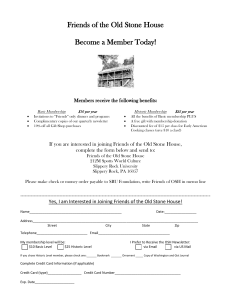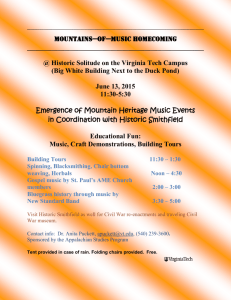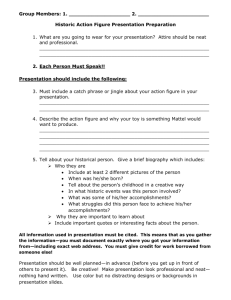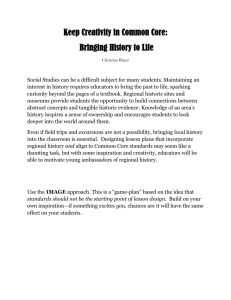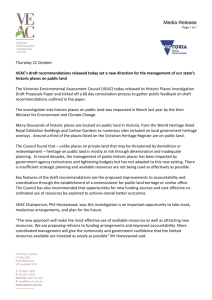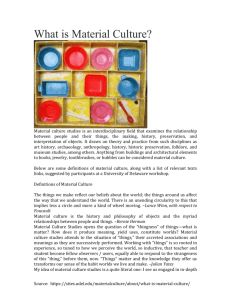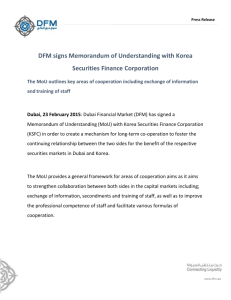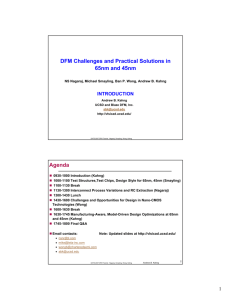shatterCABINET update 6.4.15 (1)
advertisement
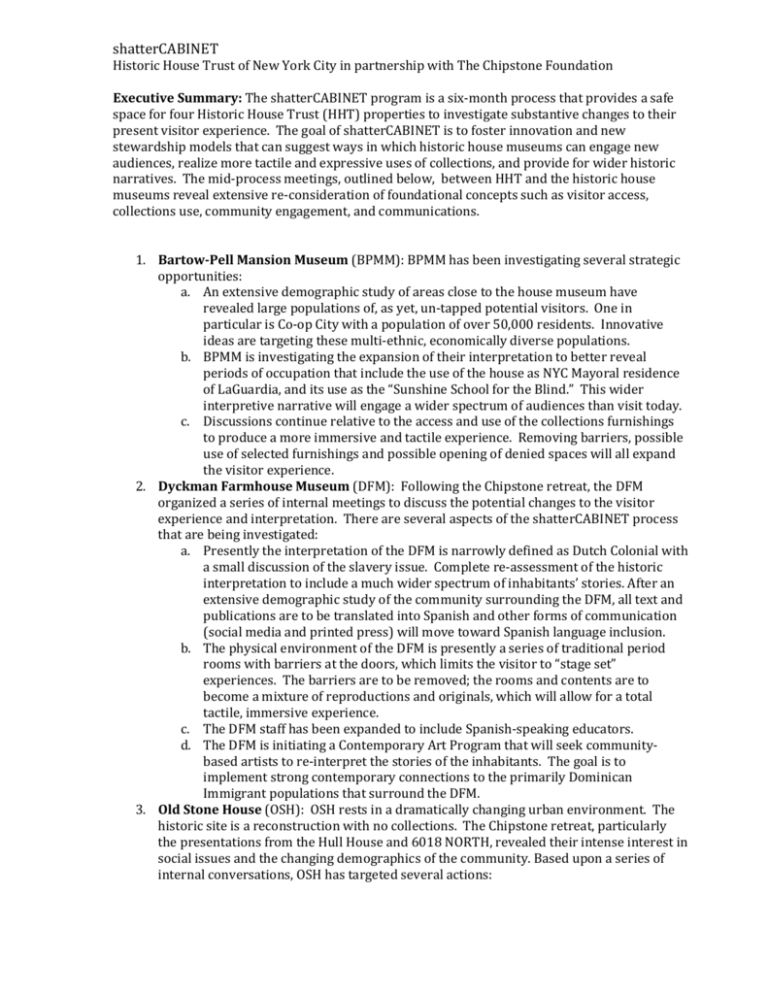
shatterCABINET Historic House Trust of New York City in partnership with The Chipstone Foundation Executive Summary: The shatterCABINET program is a six-month process that provides a safe space for four Historic House Trust (HHT) properties to investigate substantive changes to their present visitor experience. The goal of shatterCABINET is to foster innovation and new stewardship models that can suggest ways in which historic house museums can engage new audiences, realize more tactile and expressive uses of collections, and provide for wider historic narratives. The mid-process meetings, outlined below, between HHT and the historic house museums reveal extensive re-consideration of foundational concepts such as visitor access, collections use, community engagement, and communications. 1. Bartow-Pell Mansion Museum (BPMM): BPMM has been investigating several strategic opportunities: a. An extensive demographic study of areas close to the house museum have revealed large populations of, as yet, un-tapped potential visitors. One in particular is Co-op City with a population of over 50,000 residents. Innovative ideas are targeting these multi-ethnic, economically diverse populations. b. BPMM is investigating the expansion of their interpretation to better reveal periods of occupation that include the use of the house as NYC Mayoral residence of LaGuardia, and its use as the “Sunshine School for the Blind.” This wider interpretive narrative will engage a wider spectrum of audiences than visit today. c. Discussions continue relative to the access and use of the collections furnishings to produce a more immersive and tactile experience. Removing barriers, possible use of selected furnishings and possible opening of denied spaces will all expand the visitor experience. 2. Dyckman Farmhouse Museum (DFM): Following the Chipstone retreat, the DFM organized a series of internal meetings to discuss the potential changes to the visitor experience and interpretation. There are several aspects of the shatterCABINET process that are being investigated: a. Presently the interpretation of the DFM is narrowly defined as Dutch Colonial with a small discussion of the slavery issue. Complete re-assessment of the historic interpretation to include a much wider spectrum of inhabitants’ stories. After an extensive demographic study of the community surrounding the DFM, all text and publications are to be translated into Spanish and other forms of communication (social media and printed press) will move toward Spanish language inclusion. b. The physical environment of the DFM is presently a series of traditional period rooms with barriers at the doors, which limits the visitor to “stage set” experiences. The barriers are to be removed; the rooms and contents are to become a mixture of reproductions and originals, which will allow for a total tactile, immersive experience. c. The DFM staff has been expanded to include Spanish-speaking educators. d. The DFM is initiating a Contemporary Art Program that will seek communitybased artists to re-interpret the stories of the inhabitants. The goal is to implement strong contemporary connections to the primarily Dominican Immigrant populations that surround the DFM. 3. Old Stone House (OSH): OSH rests in a dramatically changing urban environment. The historic site is a reconstruction with no collections. The Chipstone retreat, particularly the presentations from the Hull House and 6018 NORTH, revealed their intense interest in social issues and the changing demographics of the community. Based upon a series of internal conversations, OSH has targeted several actions: a. Demographic study of the fluctuations of immigrant populations surrounding the historic site. Using this data, OSH is planning a series of community-based efforts, which will lead to a naturalization ceremony hosted on its site. b. OSH has actively pursued contemporary immigrant oral histories from area residents and will document them in a resulting theater piece presented on the site. c. OSH is also expanding their programing to include contemporary art happenings that will overlap the historic narrative of the site with relevant current events. 4. Wyckoff Farmhouse Museum (WFM): WFM is the oldest historic house site in NYC and contains a moderate amount of collections items. It is located about 2 hours away from Times Square, thus making it difficult as a tourist attraction. It, however, is booked solid with school children visits throughout the school year. The Chipstone retreat revealed their interest in re-imagining the visitor experience in a more tactile and immersive manner. Several areas of investigation are occurring: a. Demographic research into the surrounding community, which is revealing a large Jamaican immigrant population. This knowledge is helping to guide interpretation and experience changes. b. WFM has investigated the return of any loaned collections items that are housed in the historic structure so that they might be able to create an immersive, tactile experience for the school visits (rather than the traditional period room layout at present). c. WFM is also investigating the expansion of the historic narrative to include marginalized populations and draw strong connections to the diverse student visitors now attending.
